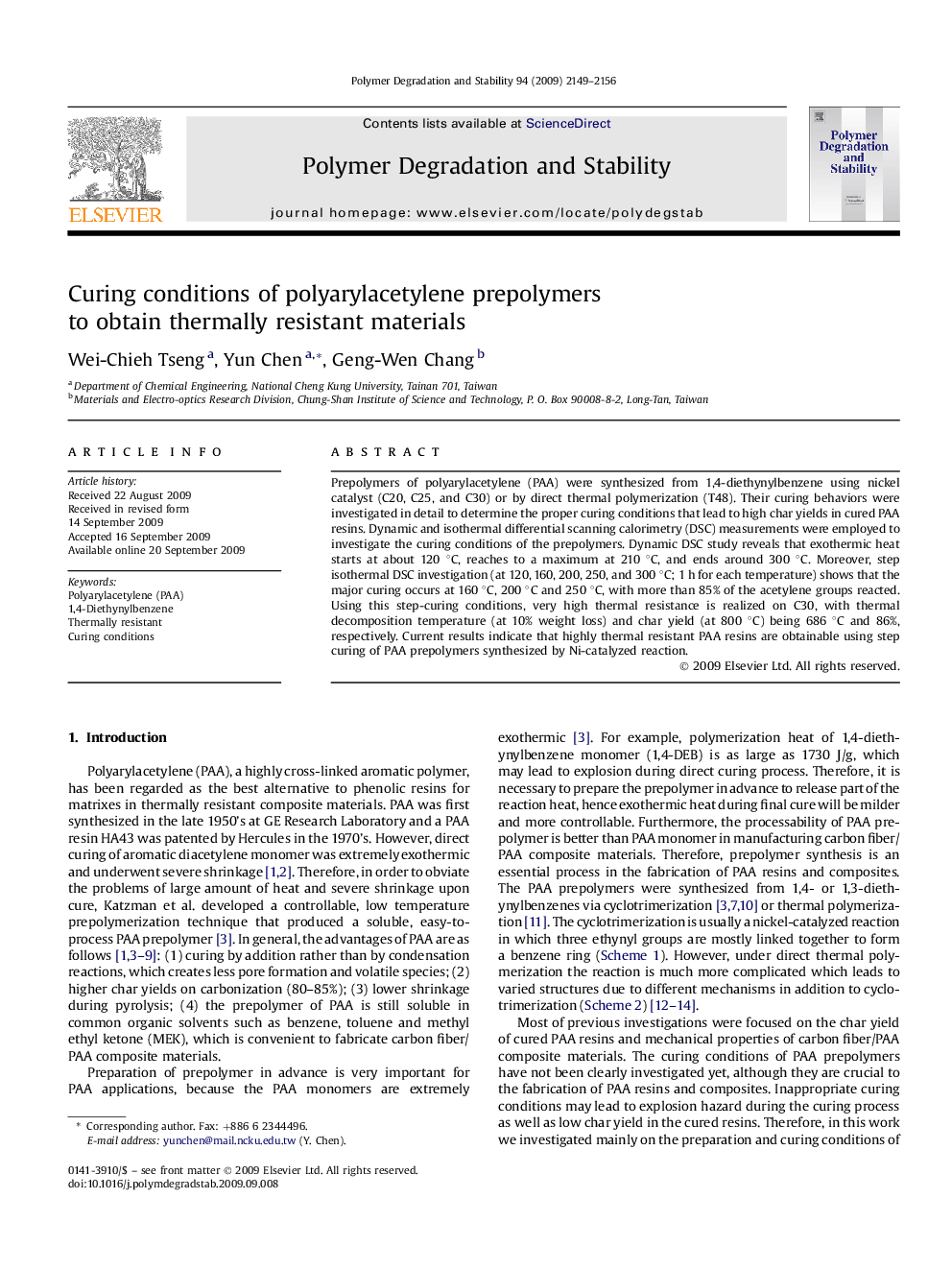| Article ID | Journal | Published Year | Pages | File Type |
|---|---|---|---|---|
| 5204314 | Polymer Degradation and Stability | 2009 | 8 Pages |
Abstract
Prepolymers of polyarylacetylene (PAA) were synthesized from 1,4-diethynylbenzene using nickel catalyst (C20, C25, and C30) or by direct thermal polymerization (T48). Their curing behaviors were investigated in detail to determine the proper curing conditions that lead to high char yields in cured PAA resins. Dynamic and isothermal differential scanning calorimetry (DSC) measurements were employed to investigate the curing conditions of the prepolymers. Dynamic DSC study reveals that exothermic heat starts at about 120 °C, reaches to a maximum at 210 °C, and ends around 300 °C. Moreover, step isothermal DSC investigation (at 120, 160, 200, 250, and 300 °C; 1 h for each temperature) shows that the major curing occurs at 160 °C, 200 °C and 250 °C, with more than 85% of the acetylene groups reacted. Using this step-curing conditions, very high thermal resistance is realized on C30, with thermal decomposition temperature (at 10% weight loss) and char yield (at 800 °C) being 686 °C and 86%, respectively. Current results indicate that highly thermal resistant PAA resins are obtainable using step curing of PAA prepolymers synthesized by Ni-catalyzed reaction.
Keywords
Related Topics
Physical Sciences and Engineering
Chemistry
Organic Chemistry
Authors
Wei-Chieh Tseng, Yun Chen, Geng-Wen Chang,
